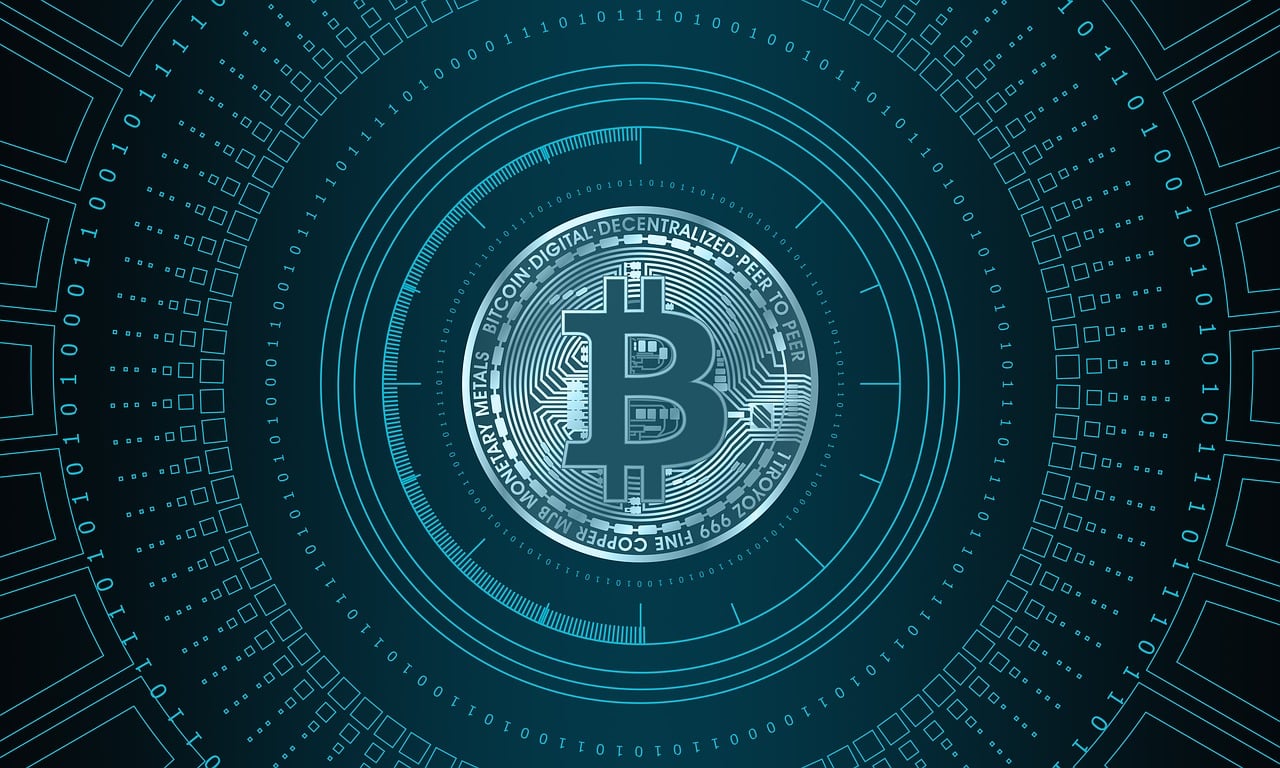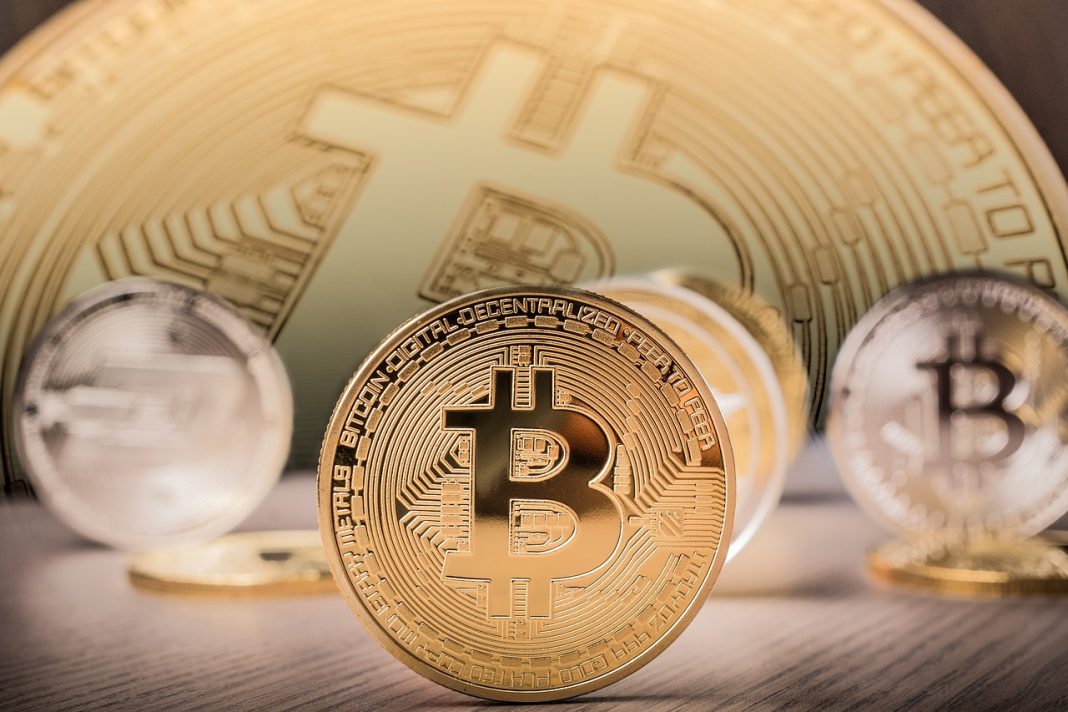The digital world is constantly evolving, and with it, the ways we transact and engage with online platforms are also changing. One significant shift has been the rising trend of integrating Bitcoin into online gaming platforms. But what’s driving this trend? Let’s delve into the reasons behind this integration and its implications for gamers and the industry as a whole.
Explanation of the rising trend of integrating Bitcoin into online gaming platforms
Bitcoin, a digital currency that operates independently of a central bank, offers a level of freedom and flexibility that traditional currencies can’t match. Its integration into online gaming is propelled by several factors. First, the increasing acceptance of Bitcoin as a legitimate form of payment opens doors for its use across various industries, including gaming. Additionally, the gaming community is often at the forefront of technological adoption, eager to explore and embrace new trends. The seamless nature of Bitcoin transactions and the reduced need for intermediaries make it an attractive option for gamers who crave quick and uninterrupted gaming experiences.
Benefits and challenges associated with using Bitcoin for online gaming transactions
Using Bitcoin for online gaming transactions comes with a mixed bag of benefits and potential hurdles. On the upside, Bitcoin offers enhanced security features. Its blockchain technology ensures that each transaction is recorded on a public ledger, reducing the risk of fraud and unauthorized transactions. Moreover, Bitcoin transactions can be faster and more cost-effective than traditional banking methods, as they bypass banks and credit card companies. However, there are challenges too. The volatility of Bitcoin’s value can affect in-game purchases and winnings, creating a layer of uncertainty for players. There’s also the learning curve associated with understanding cryptocurrencies and the need for gaming platforms to adapt their infrastructure to support Bitcoin transactions.
Overview of the potential impact on the online gaming industry
The integration of Bitcoin into online gaming could revolutionize the industry. It has the potential to create a truly global gaming environment, where players from any part of the world can participate without the barriers of currency exchange rates or banking restrictions. This inclusivity could expand the market reach for online gaming platforms. Additionally, the inherent transparency and security of Bitcoin transactions may attract a new demographic of security-conscious players. Despite these promising prospects, the online gaming industry must navigate regulatory landscapes and invest in educating users about this new mode of transaction. Only then can it fully harness the advantages of Bitcoin integration.
Understanding Bitcoin Transactions in Online Gaming
Peering into the virtual world of online gaming, where digital currencies like Bitcoin are becoming as strategic as a well-played move in chess, it’s crucial to understand how Bitcoin transactions weave into this pixelated tapestry. So, how do these transactions work within the gaming realms that captivate millions?
Detailed Explanation of How Bitcoin Transactions Work in the Context of Online Gaming
Bitcoin operates on a decentralized network known as the blockchain, where each transaction is a small quest of its own, embarking on a journey to be verified by miners. Within online gaming, when a player decides to purchase in-game assets or credits with Bitcoin, they initiate a transaction by broadcasting it to the network. This transaction includes the player’s public key (which can be thought of as an in-game character name), the recipient’s address, and the transaction amount. Unique cryptographic signatures, akin to secret handshakes, ensure that only the rightful owner can spend their Bitcoins.

Once broadcasted, this digital token of currency gets verified for authenticity and then recorded on the blockchain, an immutable ledger. It’s like a high-score table that can never be reset or altered, ensuring fairness and transparency. The ease and speed at which these transactions occur make them particularly appealing in the dynamic realm of online gaming, where players seek instant gratification and seamless experiences.
Comparison of Traditional Payment Methods with Bitcoin in Online Gaming
Conventional payment methods such as credit cards and bank transfers often feel like the slow NPCs of the financial world when compared to Bitcoin. They come with longer transaction times, higher fees, and sometimes even geographical restrictions—a real boss battle for international gamers. In contrast, Bitcoin transactions are like swift assassins, slicing through red tape and borders, offering near-instantaneous payments with typically lower fees, and without the need for currency conversion.
Moreover, traditional payment methods require sharing personal financial information, which could potentially fall into the wrong hands. Bitcoin transactions, on the other hand, simply require an address – think of it as giving someone your username without the risk of revealing your true identity or sensitive details.
Security and Privacy Considerations When Using Bitcoin for Online Gaming Transactions
When it comes to security and privacy, Bitcoin wields a double-edged sword. On one side, the decentralized nature of the blockchain and the cryptographic security measures offer robust protection against fraud and unauthorized transactions. It’s like having an impregnable castle safeguarding your coins. Players can enjoy greater anonymity since Bitcoin doesn’t necessitate divulging personal information, unlike traditional banking methods.
However, this anonymity can also open the gate to questionable practices if not navigated wisely. Being aware of the game’s rules is just as important here as it is in gameplay. Secure storage of private keys—the equivalent of password management—is vital. If a player loses their private key, it’s akin to losing a legendary weapon in-game with no hope of recovery. There’s also the finality of transactions to consider; once confirmed, a Bitcoin transaction can’t be reversed, so mistakes can be as costly as a misplaced move in a strategy game.
As we continue to explore the integration of Bitcoin into online gaming platforms, it’s essential to appreciate the nuances of this digital currency. Understanding how it functions, its advantages over traditional payment methods, and the security considerations involved lays the groundwork for a safe and enjoyable gaming experience. With Bitcoin, the possibilities extend beyond just gameplay, offering a glimpse into a future where virtual economies and real-world finances merge seamlessly.
Advantages of Bitcoin Integration for Online Gaming Platforms
Delving into the realm of digital currencies, have you wondered how Bitcoin could reshape the landscape of online gaming? One of the most compelling advantages is the enhanced security and reduced fraud risks associated with Bitcoin transactions. Unlike traditional financial systems where chargebacks and fraudulent activities are commonplace, Bitcoin operates on an immutable ledger system known as blockchain. This ensures that once a transaction is verified and added to the blockchain, it cannot be reversed or tampered with. For players and gaming platforms alike, this means greater confidence in the integrity of each transaction.
Enhanced Security and Reduced Fraud Risks with Bitcoin Transactions
Security is paramount in online transactions, and Bitcoin’s cryptographic framework provides a robust layer of protection. Each Bitcoin transaction involves complex algorithms and multiple confirmations across the network, making unauthorized interventions incredibly difficult. The decentralized nature of Bitcoin also means there’s no central point of failure, mitigating the risk of systemic attacks that can plague centralized financial institutions. As a result, gamers can enjoy their favorite pastimes with peace of mind, knowing their virtual assets are safeguarded against fraud.
Global Accessibility and Potential Cost Savings for Both Players and Gaming Platforms
Imagine a world where geographical boundaries do not dictate who can play or pay. Bitcoin makes this possible through its global accessibility. Players from anywhere in the world can engage in online gaming without worrying about currency exchange rates or cross-border restrictions. This inclusivity not only expands the market for gaming platforms but also offers cost savings. With Bitcoin, transaction fees are typically lower than those of traditional banks or credit cards, and there’s no need for intermediaries, further reducing costs for both players and platforms.
Potential for Increased Player Anonymity and Privacy Protection
In an age where privacy concerns are at an all-time high, Bitcoin presents an attractive option for those seeking anonymity. When using Bitcoin, players can transact without divulging sensitive personal information, minimizing their digital footprint. This level of privacy is not just a boon for individuals wary of sharing their details but also for platforms that aim to protect their users’ identities. Enhanced privacy measures foster trust and may encourage more users to participate, potentially boosting platform user bases and engagement.
Challenges and Considerations for Bitcoin Integration
While Bitcoin’s robust security features and the promise of reduced transaction costs make it an attractive proposition for online gaming platforms, several challenges and considerations come with its integration. These factors can significantly influence the operations of gaming platforms and the experience of their users.
Volatility of Bitcoin Prices and Its Impact on Gaming Transactions
The price of Bitcoin is renowned for its dramatic fluctuations. This volatility can be a double-edged sword for players and gaming platforms alike. On one hand, a surge in Bitcoin value could mean more purchasing power for the player, but on the other, a sudden drop could just as quickly erode it. For platforms, setting game prices, managing in-game economies, and ensuring fair exchange rates become complex tasks. They must frequently update the Bitcoin to fiat currency conversion rate to maintain consistency and fairness, which can be both resource-intensive and risky if not managed correctly.
Regulatory and Legal Considerations for Integrating Bitcoin into Gaming Platforms
Another layer of complexity is added by the regulatory and legal landscape which remains a gray area in many jurisdictions. The decentralized nature of Bitcoin poses a challenge for regulators who are used to dealing with centralized financial entities. Gaming platforms must navigate a patchwork of international laws that can vary drastically from one country to another. Compliance with anti-money laundering (AML) and know your customer (KYC) regulations can also be more demanding when integrating cryptocurrencies, requiring platforms to implement stringent verification processes.
Technical Challenges and the Need for Robust Infrastructure to Support Bitcoin Integration
Finally, the technical aspect of integrating Bitcoin cannot be understated. Online gaming platforms need to develop or adopt secure wallets and payment gateways capable of handling cryptocurrency transactions. They must ensure that these systems are compatible with existing infrastructure while being resilient to cyber threats. Furthermore, the scalability of Bitcoin transactions can sometimes lag behind demand, leading to slower transaction times during peak periods. Establishing a robust infrastructure that can handle these issues is essential but can require significant investment in technology and expertise.
How to Successfully Integrate Bitcoin into Online Gaming Platforms
With the complexities surrounding Bitcoin integration in online gaming platforms, many wonder what the best practices are for a smooth and secure implementation. Let’s explore these practices, user experience strategies, and review some real-world success stories.
Best Practices for Implementing Bitcoin Payment Systems in Online Gaming
When it comes to integrating Bitcoin payment systems, there are several best practices that can help ensure success. Firstly, gaming platforms should establish partnerships with reputable cryptocurrency payment processors to facilitate secure transactions. These processors can handle the intricacies of blockchain technology, allowing platforms to focus on providing the best gaming experience.
Additionally, maintaining transparent communication with users about how Bitcoin transactions work is crucial. This includes clear instructions on depositing and withdrawing funds, as well as providing real-time support for any issues that may arise. To accommodate fluctuations in Bitcoin value, platforms should also implement dynamic pricing models that update game prices in real time, protecting both players and the platform from volatility risks.
Finally, it’s essential to have a thorough testing phase before full-scale implementation. This helps identify any potential technical issues that could disrupt transactions or user experiences.
User Experience Considerations and Strategies for Promoting Bitcoin Adoption Among Players
User experience is paramount when introducing a new payment method like Bitcoin. Simplifying the transaction process is a start; the fewer steps required, the better. Providing a seamless wallet integration within the gaming platform can reduce friction and make the transition to Bitcoin more attractive for players.

Education is another key strategy. By demystifying Bitcoin and explaining its benefits, gaming platforms can alleviate common concerns and misconceptions. Incorporating tutorials, FAQs, and interactive guides can engage users and build their confidence in using cryptocurrencies.
To further promote adoption, incentives such as bonuses for using Bitcoin can be effective. These rewards not only encourage players to try out the new payment method but can also foster loyalty and increase long-term user engagement.
Case Studies of Successful Bitcoin Integration in Online Gaming Platforms
Examining case studies of gaming platforms that have successfully integrated Bitcoin can provide valuable insights. For instance, the online casino BitStarz has been at the forefront, accepting Bitcoin since 2014. They’ve managed to streamline the deposit and withdrawal process, making it user-friendly and efficient. This approach has resulted in high user satisfaction and an increase in Bitcoin transactions over the years.
Another example is the gaming site SatoshiDICE, which was one of the first to adopt Bitcoin. By being a Bitcoin-only platform, they have carved out a niche for themselves in the online gaming market. Their commitment to transparency, with provably fair games and immediate payouts, has garnered a dedicated player base.
These cases demonstrate that with thoughtful planning, a focus on security, and a dedication to user experience, integrating Bitcoin into an online gaming platform can be highly successful.
Conclusion and Future Outlook
In summing up the journey of Bitcoin within the online gaming universe, we’ve uncovered some compelling advantages and faced a fair share of challenges. On one hand, Bitcoin’s integration promises enhanced security, broadened global access, and an elevation in privacy for players. On the other hand, its volatile nature and the complex web of regulatory issues present hurdles that cannot be ignored.
Recap of the Key Benefits and Challenges
As we’ve seen, Bitcoin can provide a more secure transaction environment, reducing the risk of fraud which is a boon for both gamers and platform operators. Its decentralized nature eliminates the need for intermediaries, potentially lowering transaction fees and offering cost savings. This, paired with the fact that it can be accessed globally, opens doors for a worldwide audience to engage in online gaming.
However, challenges like the fluctuating value of Bitcoin can pose risks for both the platforms and their users, who may find the worth of their winnings subject to rapid changes. The legal landscape is also a moving target, as different countries have varying regulations regarding cryptocurrency use, impacting how gaming platforms can operate within these jurisdictions. And let’s not forget the technical demands; robust infrastructure is necessary to ensure smooth Bitcoin transactions, necessitating a significant investment from gaming platforms.
Discussion on the Potential Future Developments and Innovations
Looking forward, we anticipate a surge in innovative solutions aimed at stabilizing Bitcoin’s value in the context of gaming. These might include the introduction of in-game stablecoins pegged to traditional currencies or assets, thereby mitigating the risk associated with volatility. We may also witness advancements in blockchain technology that could streamline transactions and make them even more secure.
Furthermore, there’s potential for the development of new gaming platforms built around the concept of blockchain and cryptocurrencies, offering unique games and reward systems based on digital assets. Such platforms could offer unprecedented transparency in gaming mechanics and payouts, fostering trust among users.
Call-to-Action for Stakeholders to Explore Bitcoin Integration Opportunities
To all stakeholders in the online gaming industry — from developers and operators to players and regulators — now is the time to delve deeper into the possibilities presented by Bitcoin. For developers and operators, consider the long-term benefits and prepare to tackle the challenges head-on. This might involve investing in educational initiatives to help users understand Bitcoin, developing user-friendly interfaces for cryptocurrency transactions, and staying abreast of legal changes.
Players should educate themselves on the benefits and potential risks of using Bitcoin for gaming transactions. Meanwhile, regulators are encouraged to develop clear guidelines that can protect consumers while fostering innovation in the gaming sector.
Ultimately, the integration of Bitcoin into online gaming platforms is not just about embracing a new payment system. It’s about reimagining the future of online gaming, making it more accessible, secure, and innovative. Let’s take the lessons learned, the challenges faced, and the successes celebrated as a beacon to


